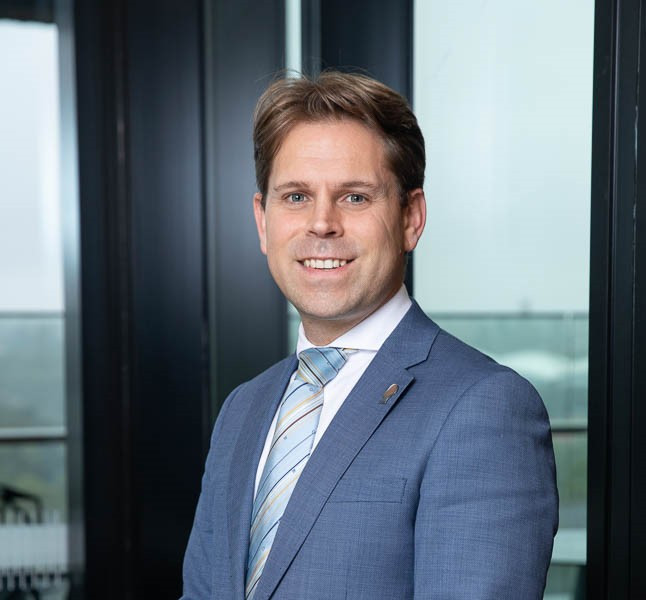Interview with Neurosurgeon Dr Adam Wells
Dr Adam Wells is a Neurosurgeon at Adelaide Spine & Brain in North Adelaide. He is the Abbie Simpson Clinical Fellow, Department of Neurosurgery, at the Royal Adelaide Hospital.

Dr Wells has engaged with the NRF through his research work and here he shares with us his thoughts on his career, role and his approach to getting to know his patients.
What is the most meaningful part of your role?
“It is a cliché, but I like helping people. People are grateful for your help. You can make a difference. It is a beautiful part of the job. However, it is very difficult when you can’t help people. It’s one of the reasons why I don’t like working in paediatrics, children are so innocent and it’s so sad for everyone when things don’t work out well. Having my own children made that very difficult for me, when I was doing my paediatric training I had three terrible outcomes in one week. It was tragic.”
What is your approach to building a relationship with your patients?
"I ask the patient about themselves, I ask about what they enjoy, what do they do for work, where did they grow up, all those questions so that I can build rapport with them and find common ground. I like to be personable – I always ask that people call me Adam, never Doctor Wells."
What is it about the NRF that makes it unique?
“The NeuroSurgical Research Foundation is unique to South Australia. In fact, there is nothing quite like it that I know of in the rest of Australia or the world. The NRF supports world-class neurosurgical research and we are very lucky to have that here.”
What is your favourite part of the role?
“I enjoy operating – all surgeons do of course – I really love undertaking an operation and getting the technical parts of it just right. And I love helping people and helping improve their quality of life – there is nothing better than that.”
How do you deal with delivering bad news?
“Dealing with death does unfortunately get easier as you get more experienced, the more you are exposed to it. Thankfully Medicine is now moving away from just treating the pathology to treating the person – this is great as for many years, Medicine has not been very good at treating the individual.
“As part of the Royal Adelaide Hospital Fellowship I am involved in an international group called ISQUA which is a management training course focused on person-centred health care. This is a shift away from the blame culture of Medicine.
“A lot of it is about asking the patient what their goals are – what are those milestones you are looking to make – whether that is a birthday or attending a wedding. The focus is on what the patient wants – it is about person-centred care. This is something I am trying to implement in my practice.
“Just last week I saw a patient who is terminal and who was seeking surgery. I had to talk with her and her husband about what that means for the time she has left. I wanted them to really think about whether the surgery was the right decision. I asked them to take their time to consider this.
“As a surgeon, I love operating, however sometimes it is not in the best interests of the patient. To undergo brain surgery is a big undertaking, and if it is going to impact on the time you have left, it needs to be considered very carefully. Quality of life is an important consideration when you have a terminal diagnosis.”
Tell me about a patient’s story that has stayed with you and why.
“There was a patient who had a very large frontal lobe benign tumour called a meningioma, she was in her late 60s, and the tumour had been there for probably about 10 years by the time I met her but it was unfortunately previously undiagnosed.
"She was living in a nursing home and was confined to a wheelchair. After the operation, her mind and her memory started to come back.
"Her sister said to me, 'Thank you for giving me my sister back.' That was a patient whose story stayed with me and I’ll never forget her and her family. I am hope she was eventually able to leave the nursing home and go back to her home environment – I have a follow up with her coming up so we will find out," he said.




